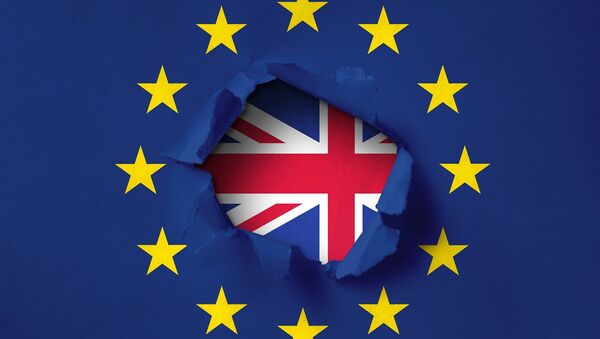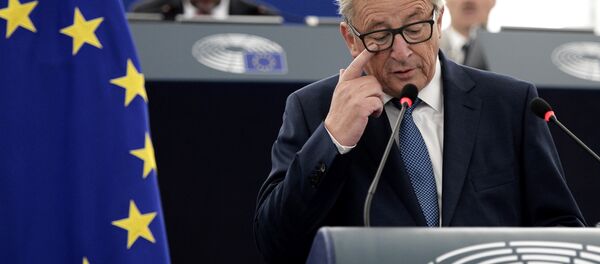The Brexit working group will be led by the Michel Barnier, the former French foreign minister and ex-EU commissioner, on behalf of the Commission. He deputy is Sabine Weyand, a long-serving EU official who acted as an adviser to former Commission President Jose Manuel Barroso.
The Prime Minister has triggered Article 50 and started the process of leaving the EU. Read the letter: https://t.co/4CfCle4BP1 pic.twitter.com/Gf4DIudIMH
— UK Prime Minister (@Number10gov) March 29, 2017
At its first meeting, it will adopt the guidelines formally agreed between all three institutions of the EU — the Commission, the Council and the Parliament. The first meeting of the Brexit working group will set the formal agenda for talks which are due to begin during the week commencing June 19 — 11 days after the UK general election.
#Article50 negotiations: we'll be open & transparent. Our 1st priority: protect rights of EU citizens in UK & UK citizens in the EU. #Brexit pic.twitter.com/AA07dsB3v2
— European Commission (@EU_Commission) 22 May 2017
The timetable for the talks is based on Article 50 of the Treaty of Lisbon, which stipulates that negotiations will be over a period of two years from the date that the UK formally notified the European Council of its intention to leave the EU — March 29.
The text of Article 50 says that talks may be extended, provided that all the remaining 27 EU members agree, but that is likely to prove complex, so most commentators believe some shape of agreement will be in place by March 2019 — even if there is then a transition period for British withdrawal and an eventual new trade agreement.
Difficult Agenda
The terms of the negotiations are based on a phased approach favored by Brussels — agreeing a divorce first, followed by talks over a new trade agreement. However, that is likely to be complicated because of the main points of the guidelines drawn up by the Commission.
First, the "divorce bill" must be agreed — what Britain must pay to the EU based on obligations it signed up to prior to leaving then EU. The cost of this has been suggested to be as high as US$100 billion, although experts are divided over how that figure is arrived at. For certain, the UK government has made clear it is willing to look at a breakdown of the costings — although a parliamentary report suggest the UK could walk away paying nothing
"Although there are competing interpretations, we conclude that if agreement is not reached, all EU law-including provisions concerning ongoing financial contributions and machinery for adjudication-will cease to apply, and the UK would be subject to no enforceable obligation to make any financial contribution at all," the report states.
"This would be undesirable for the remaining Member States, who would have to decide how to plug the hole in the budget created by the UK's exit without any kind of transition. It would also damage the prospects of reaching friendly agreement on other issues. Nonetheless, the ultimate possibility of the UK walking away from negotiations without incurring financial commitments provides an important context," it says.
#Article50 negotiations: we'll be open & transparent. Our 1st priority: protect rights of EU citizens in UK & UK citizens in the EU. #Brexit pic.twitter.com/AA07dsB3v2
— European Commission (@EU_Commission) 22 May 2017
The other sticking point it likely to be the Northern Ireland issue. Once the UK leaves the EU, the border between Ireland and Northern Ireland becomes an external border to the EU, which raises major historical issues and goes to the heart of the Northern Ireland peace process.
The Commission has made clear that — before any new trade deal can be agreed, there has to be consensus that the border will remain "soft" — no border checks or customs points. However, this is likely to depend on whatever eventual trade deal if finally agreed upon. This is likely to prove a major headache for all parties.
Despite this, chief negotiator Barnier says he is hopeful the talks can proceed swiftly after the result of the UK election is declared.
"In the course of the next few days we will finalize our negotiating positions on the key subjects for the first phase of the negotiations. These positions will then be sent to the UK. I expect this to happen very quickly, very quickly, after the elections. In line with our transparency policy, we will publish our position papers and negotiating documents," he said ahead of the first meeting, May 23.
"I hope to organize the first round of negotiations as soon as possible, hopefully in the week of 19 June. I would like to be able to give a first report to the European Council on 22-23 June, exactly one year after the date of the referendum and less than three months after Theresa May's notification letter," Barnier said.





